I am learning concepts of signals in the C language and met a problem when building a program for practices.
In the codes below, I am trying to reset SIGINT each time after the user press "ctrl-c" and to record how many times the user press "ctrl-c".
#include<stdio.h>
#include<signal.h>
#include<unistd.h>
#include<setjmp.h>
void handler(int signo);
jmp_buf buf;
int int_counting = 1;
void handler(int signo)
{
signal(SIGINT, SIG_DFL);
int_counting++;
// just tried to add another "signal(SIGINT, handler)" here
// but saw the same result
longjmp(buf, 1);
}
int main()
{
if ((signal(SIGINT, handler) == SIG_ERR))
{
printf("Fail to catch the signal\n");
}
if (!setjmp(buf))
{
printf("Waiting for any signals ... \n");
}
else
{
if (!setjmp(buf)){} // to reset "setjmp" to zero
printf("Pressed 'ctrl-c' for %d times\n", int_counting);
printf("Waiting for another signal\n");
signal(SIGINT, handler);
}
while (int_counting <= 5)
{
sleep(1);
printf("Processing ...\n");
}
}
However, after the first signal no other signals can be sent to handler and the output looks like:

Could you anyone explains the reason?
Below are examples where it seems like the signal will not be masked.
// Examples for SIGALRM
#include<stdio.h>
#include<signal.h>
#include<unistd.h>
int counting = 0;
void handler(int signo)
{
printf("%d\n", counting);
while (counting < 5)
{
signal(SIGALRM, handler);
printf("%d\n", beeps);
counting++
alarm(1);
}
}
void main(void)
{
if (signal(SIGALRM, handler) == SIG_ERR)
{
printf("cannot catch SIGALRM\n");
}
alarm(1);
while (counting < 5)
{
pause();
}
return;
}
// Example for SIGQUIT
#include<stdio.h>
#include<signal.h>
#include<unistd.h>
#include<setjmp.h>
jump_buf buf;
void handler(int signo)
{
signal(SIQQUIT, handler);
longjmp(buf, 1);
}
int main()
{
signal(SIQQUIT, handler);
if (!setjmp(buf))
{
printf("begin ...\n");
}
else
{
print("restart ...\n");
}
while (1)
{
sleep(1);
printf("waiting for sinals ...\n");
}
}
Although my original question is answered but if any further explanation about why those signals will not be masked (or please tell me that is how they work in C), it would be greatly helpful.